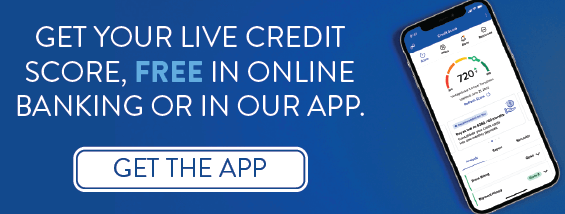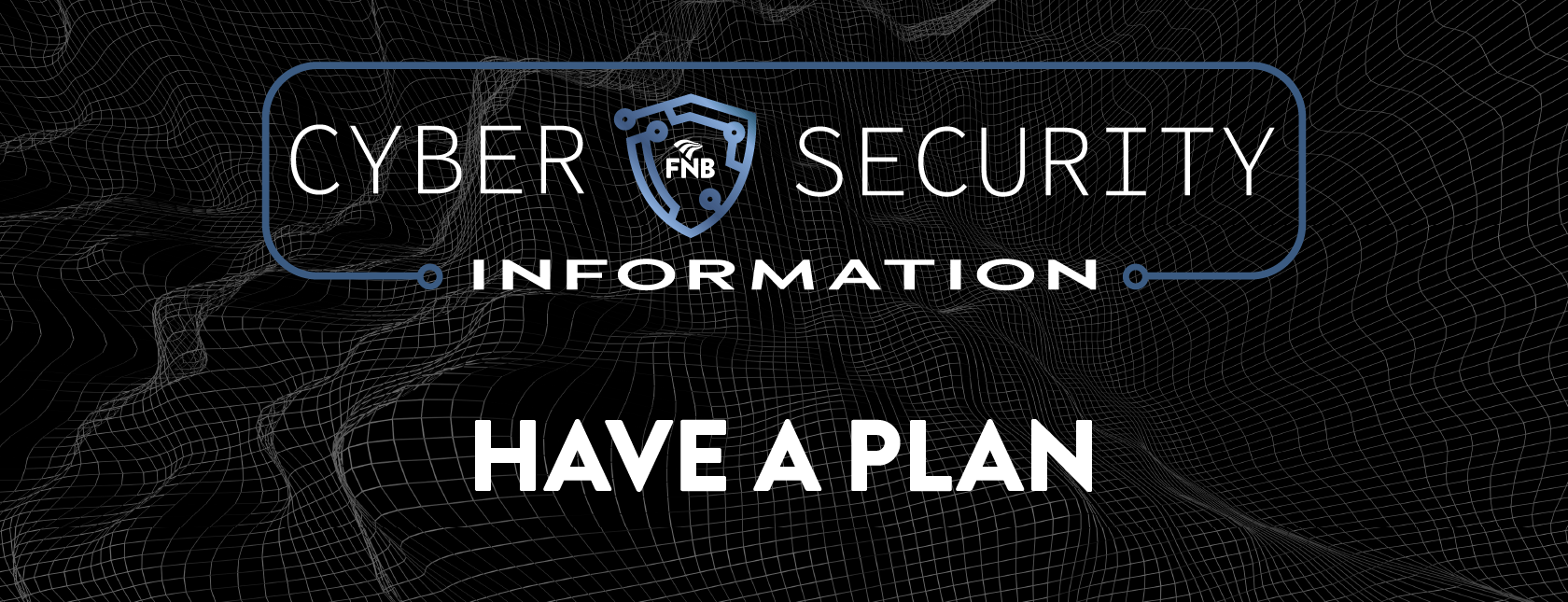FNB Cybersecurity Info: Have a Plan
October is Cybersecurity Awareness Month and FNB has been providing valuable weekly tips and information throughout the month to help you protect your good name. Thank you for tuning in with us this month on GrowWithFNB.com and we hope these weekly tips have helped you #BeCyberSmart.
It’s the final week of Cybersecurity Awareness Month and FNB’s helpful tips. It’s also Halloween time, so we’re going to talk about a frightening topic. What do you do when something scary happens, such as your home computer getting hit with ransomware? When your business e-mail has been compromised? When your identity is stolen? Do you know what to do? Where to start? Who to contact and when?
Let’s take a look at the Federal Trade Commission’s (FTC) What to Know/What to Do Guide for helpful tips on general identity theft, medical identity theft, child identity theft, and military families theft below:
First, above all, remain calm.
Call the companies where you know fraud occurred and explain that your identity has been stolen. Credit card companies and banks see this every day and will know how to help you.
Contact the three credit bureaus and place a free fraud alert on your information. In addition, you should request your free credit report to review and make notes of any transactions you don’t recognize:
-
-
- Experian.com/help (888-EXPERIAN; 888-397-3742)
- TransUnion.com/credit-help (888-909-8872)
- Equifax.com/personal/credit-report-services (800-682-1111)
- Annualcreditreport.com (877-322-8228)
-
Go to IdentityTheft.gov and start your free personalized recovery plan. Be sure to include as many details as possible. This will make your recovery plan more accurate and will help law enforcement if they need to be involved.
You may contact the Social Security Administration to make them aware of the situation.
Change your passwords on your accounts if you can.
Remember to track all communications (get a paper trail and document everything in a notebook).
Go to ftc.gov to let authorities know what’s going on.
Utilize downloadable and printable PDF guides from the FTC for additional tips:
- https://www.bulkorder.ftc.gov/system/files/publications/501a-identity-theft-a-recovery-plan_2018.pdf
- https://www.bulkorder.ftc.gov/system/files/publications/825a_idt-child-what-to-know-what-to-do.pdf
- https://www.bulkorder.ftc.gov/system/files/publications/973a-medical-idtheft-what-to-know-what-to-do-508.pdf
- https://www.bulkorder.ftc.gov/system/files/publications/705a_idt-military-what-to-know_what-to-do-508.pdf
First, above all, remain calm.
Disconnect your computer from the Internet.
Document everything that you’re doing, who you’re contacting, and when it happened. Create a paper trail in case you need it.
Change your passwords to online banking, email, and other services if you can from a different device.
If you suspect your online banking or financial information has been compromised, contact your bank and credit card companies. Look at the Identity Theft guide above from the FTC for additional tips.
Call your IT Support to get your computer examined and cleaned. This is an important point. Some scammers will call you after they’ve compromised your system and pose as Microsoft or another computer company asking to fix the problem. Don’t believe them. You should do your own research and call a company yourself.
Have backups beforehand. This makes the situation much easier. A complete wipe of your system allows your backups to be restored and you won’t lose anything, and you’ll have a fresh computer again. This is especially important for ransomware that asks you to pay money to unlock your files. If you conduct backups after the compromise, make sure they are clean before you restore them.
Speaking of ransomware, never pay the ransom. There is no guarantee you’ll get your files back and you’ll be out the money. Additionally, the United States government has recently come out with guidance that says those that pay ransoms to foreign counties and entities known as enemies of the Unites States can be held liable for sending them the money!
Make sure you reinstall computer security up once your computer or device is cleaned up. Run scans and updates like we discussed in Week 4.
Remember to file a complaint with the FTC at ftc.gov/complaint.
Here are a couple links from the US-CERT and FTC with some additional information:

